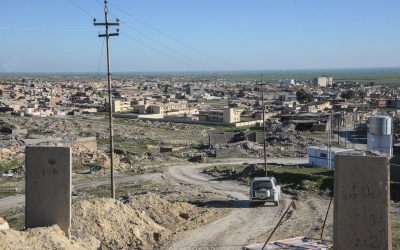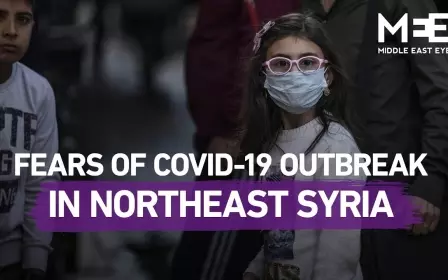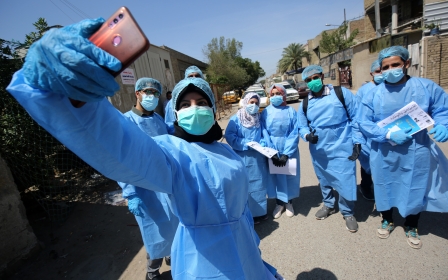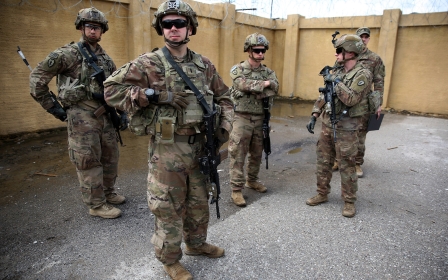Coronavirus: Secret funeral in Iraq's Kurdish region prompts infection spike
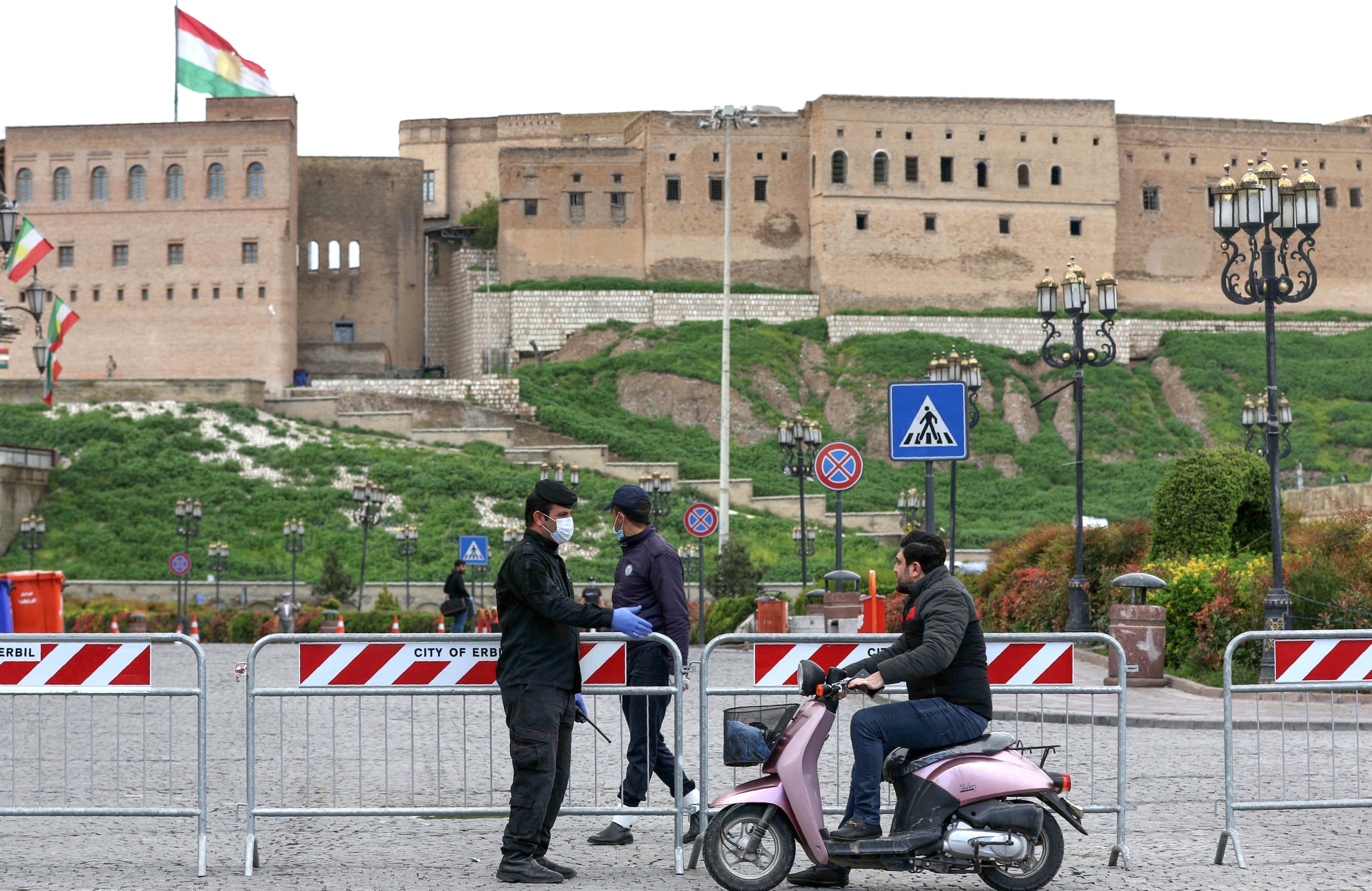
A secret funeral held in the Kurdish city of Erbil in late March has been blamed for a spike in coronavirus infections in Iraq's Kurdistan region.
Officials in the Kurdistan Regional Government (KRG) confirmed 41 new Covid-19 cases in the capital Erbil on Monday - 17 women, 15 men and nine children - which marks the highest number of infections the autonomous region has seen in one day.
'Doctors, nurses, hospital staff and security forces have all been working around the clock to save lives and have been asking people to stay at home and not to gather under any circumstances'
- Idris Zeyad Rafaat, medical student
The confirmed cases were distributed as follows: two in Soran district, three in the Sidakan district, one in the village of Halja Bchook, and the other 35 cases in nine neighbourhoods across Erbil's city centre, according to a statement by the KRG health ministry.
The new infections bring the total number of reported cases to 277.
The statement said that 32 out of the 41 reported cases came after contact with a single infected person at a secret funeral gathering held in Erbil’s Karizan neighbourhood on 21 March.
New MEE newsletter: Jerusalem Dispatch
Sign up to get the latest insights and analysis on Israel-Palestine, alongside Turkey Unpacked and other MEE newsletters
“We ask the people who went to the funerals of Fatah Hamad Salih and Fatima Rahman Hussein in Karizan on Saturday March 21, 2020 to immediately visit a coronavirus treatment centre or contact the medical teams to be tested for coronavirus,” the Erbil health directorate said, according to NRT.
“Against all regulations, two families in Erbil held a funeral ceremony... that caused 32 people who attended the funeral to catch the coronavirus, which now makes up 35 percent of all the cases in Erbil,” the directorate added.
With funerals banned over coronavirus fears, the KRG's interior ministry on Monday said those who attended would be prosecuted, including those infected with the illness.
Idris Zeyad Rafaat, a final year medical student from Erbil, said it was deeply frustrating to see people ignoring government regulations.
“Doctors, nurses, hospital staff and security forces have all been working around the clock to save lives and have been asking people to stay at home and not to gather under any circumstances, as it will lead to the spread of the virus”, he told Middle East Eye.
“Some were from their own family and others were people coming to the funeral from different neighbourhoods, they have all become infected with the virus.”
Lockdown
The spike in the number of infections comes despite the imposition of a firm lockdown by the KRG.
Authorities imposed a 48-hour comprehensive curfew starting from 12pm on Saturday, with only on-duty health workers and security forces allowed to move freely.
Schools, universities, public gatherings and funerals have all been banned.
Despite this, on 5 April, Erbil’s police dispersed another funeral in Daratu district by force and imposed quarantine on the guests.
The KRG on Monday held a committee meeting via video-conference chaired by Deputy Prime Minister Qubad Talabani.
The committee decided that the current 48-hour curfew would remain in place until midnight in order to reconsider the previous curfew order that bans travel throughout the Kurdish region until 10 April.
As part of the meeting, KRG President Nechirvan Barzani thanked the public and delivered a special thanks to "our heroes, medical teams, Peshmerga soldiers, law enforcement and media agencies who work tirelessly to save lives."
Official figures released by the central government in Baghdad said that Iraq had, as a whole, recorded 1,031 infections and 64 deaths, though this figure has been questioned in some circles.
Globally, coronavirus has infected over 1.3 million people and killed more than 72,000, according to data released by Johns Hopkins University.
Rafaat said that, despite the damage caused by incidents like the funeral, Iraqis would be able to pull through the crisis.
“Iraqis have faced many struggles, including the Islamic State," he said, referring to the militant group.
"Together hand in hand we can contain the outbreak. If we work all together, we can definitely overcome this virus."
Middle East Eye delivers independent and unrivalled coverage and analysis of the Middle East, North Africa and beyond. To learn more about republishing this content and the associated fees, please fill out this form. More about MEE can be found here.


